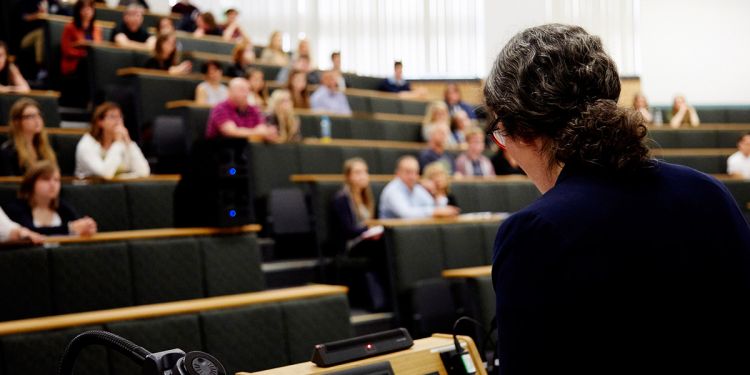Embedding Interculturality in the Student Experience: PRIA lunch

- Date: Thursday 16 May 2024, 12:00 – 14:00
- Location: Baines Wing SR (1.06)
- Cost: Free
You are invited to join Pedagogic Research in the Arts (PRIA) for an in-person event exploring ways in which colleagues research, embed and co-create interculturality within their pedagogic practices
Embedding Interculturality in the Student Experience: PRIA lunch
Chair: Martin Ward, AHC Faculty Academic Lead for Global Campus Experience
You are invited to join Pedagogic Research in the Arts (PRIA) for an in-person event exploring ways in which colleagues research, embed and co-create interculturality within their pedagogic practices. There will be opportunity for discussion and informal networking. In order to plan for catering, please complete this registration form by 8 May, 12pm.
The session will explore themes in supporting interculturality within AHC and practical advice for implementation.
If you have any questions, please contact us at priacentre@leeds.ac.uk
Schedule:
12-12.30 Lunch and networking
12.30-1pm Stepping Up, Standing Out: Supporting international postgraduate students to make the most of their year in a UK university (Clare Wright and Alison Leslie)
1pm-1.30pm Are we really teaching intercultural awareness? Student perceptions on the use of languages to teach cultural topics in Modern Languages programmes (Alba del Pozo García)
1.30-2.00pm School of Music’s International Students Project (Hyunah Cho)
Stepping Up, Standing Out: Supporting international postgraduate students to make the most of their year in a UK university
Clare Wright and Alison Leslie, School of Languages, Cultures and Societies
Evidence shows that international PGTs often struggle to match expectations and experiences in academic socialisation and success, resulting in them feeling marginalised and not adequately supported to study at a UK university (UKCISA, 2022). Our experience of teaching international PGTs at the University of Leeds highlights these barriers, as does data from our three-year LITE research project, which supports international PGTs in stepping up to make the most of their time at the University academically and standing out as valued members of the University community. We will share the findings of the project and what constitutes effective academic support from the perspective of international PGTs in our two Schools at Leeds.
Are we really teaching intercultural awareness? Student perceptions on the use of languages to teach cultural topics in Modern Languages programmes
Alba del Pozo García, School of Languages, Cultures and Societies
This presentation arise from a traditional division in Modern Languages (ML) degrees between language taught in the language of study and cultural content modules with a tendency to use English to teach and assess. Previous research has shown that this division affects students’ capacity to develop cultural and intercultural awareness about the language and culture they are learning; it also motivates a utilitarian vision of language as a tool for communication that excludes cultural differences.
In this context, this project aimed at investigating how do year-1 language students perceive the use of the target language in their cultural content modules. To answer this question, 7 participants have been interviewed finishing their first year of Spanish Single-Honours, Joint-Honours or Spanish with another language degree at LCS.
Partial results indicate that using the language of study or Target Language (TL) in content modules encourages a sense of reward and improvement by students and could improve an intercultural approach by increasing the emotional attachment to the topics studied. Following these themes, the presentation will suggest critically evaluate current barriers to the successful integration of language and content in ML degree programs.
School of Music’s International Students Project
Hyunah Cho, School of Music
The School of Music launched the 'International Students Project' to enhance the integration and sense of belonging between our international students, domestic students, and staff members, throughout the 2023/2024 academic year. As we reflect on the progress made, we are now preparing to disseminate a summary of the work completed, the outcomes achieved, and the lessons learned. This summary will also include guidance on how these practices can be adapted and applied in other schools. We believe that sharing this information will not only highlight the successes and challenges of the project but also serve as a valuable resource for replicating similar initiatives across different academic environments.

